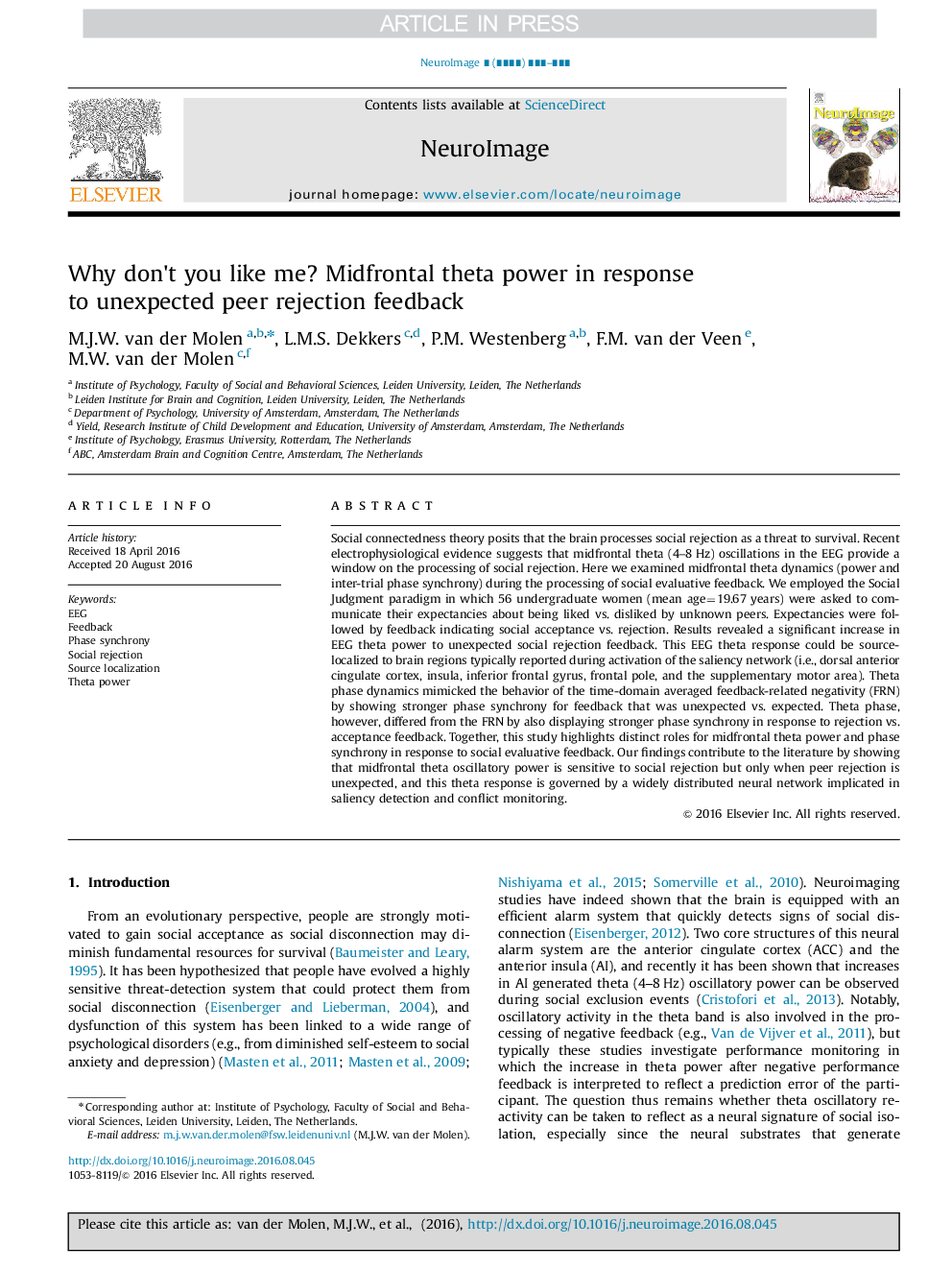ترجمه فارسی عنوان مقاله
چرا منو دوست نداری؟ قدرت تتا میدفرونت در پاسخ به بازخورد غیر منتظره نظیر بازخورد
عنوان انگلیسی
Why don't you like me? Midfrontal theta power in response to unexpected peer rejection feedback
| کد مقاله | سال انتشار | تعداد صفحات مقاله انگلیسی |
|---|---|---|
| 130082 | 2017 | 10 صفحه PDF |
منبع

Publisher : Elsevier - Science Direct (الزویر - ساینس دایرکت)
Journal : NeuroImage, Volume 146, 1 February 2017, Pages 474-483

